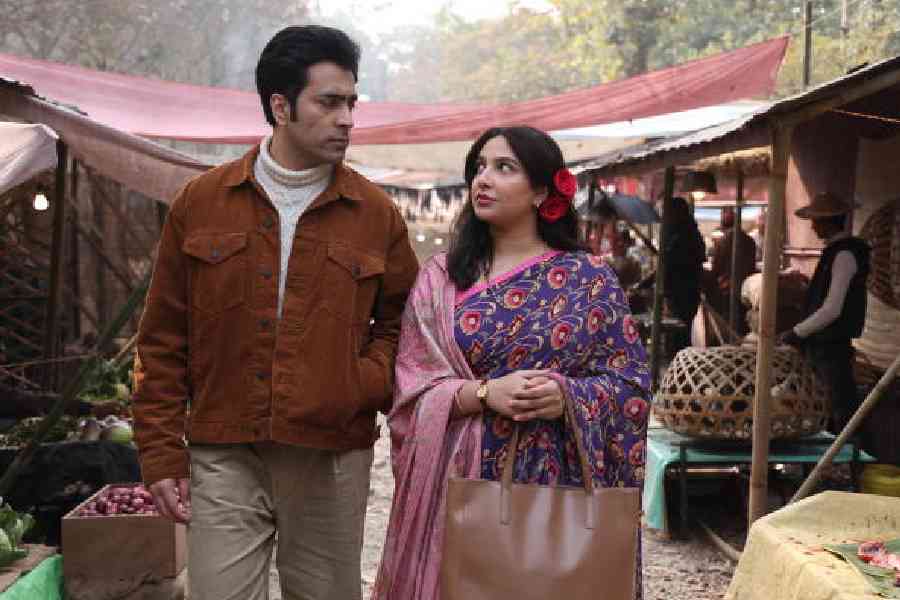When we encounter descriptions of hills, mountains, planets, and stars in novels, they may seem like mere descriptions; but if the author is deeply conscious, these descriptions are transformed into a genre of nature consciousness. Nature consciousness existed in Rabindranath Tagore and Bibhutibhushan Bandyopadhyay as well, making their depictions of nature stand out.
Buddhadeb Guha is a prominent figure among those who have portrayed nature in Bengali fiction literature of the 20th century. If anyone is to be called a writer of nature after Bibhutibhushan, it is certainly Buddhadeb Guha, as the depth of his nature consciousness, which began unfolding during his teenage years, is profound.
During his time spent on work engagements, which included touring different forest regions, and hunting, Buddhadeb Guha’s mind gradually became captivated by the forests, though he may not have been fully conscious of it at the time.
Buddhadeb Guha’s novel Babli tells the story of a young woman suffering from depression due to her obesity, a theme that remains relevant even today.
In Raj Chakraborty’s Babli, Abhiroop, a London School of Economics graduate, meets Damayanti, also known as Babli, during his travels to Imphal. Babli, struggling with her obesity and feeling that her story is often overlooked, finds solace and vibrancy through her friendship with Abhiroop. Their journey takes an unexpected turn when their car breaks down, forcing them to spend a night together in a jungle cottage, adding a new dimension to their relationship. Meanwhile, Babli’s air hostess friend Jhuma, who is also attracted to Abhiroop, adds a layer of insecurity to Babli’s experiences.
Raj Chakraborty stands out as an exceptionally dynamic director in Bengali cinema, particularly renowned for his work in the romantic film genre. His directorial prowess shines through in several films, with Parineeta emerging as his most notable romantic venture, surpassing even acclaimed works like Prem Amar and Bojhena Shey Bojhena.
When both partners in a marriage share the same profession and rely on each other to fulfil their creative visions, it often leads to a profound and inevitable romantic synergy.
In Parineeta, Subhashree Ganguly delivers a performance that will be remembered for generations. Her portrayal is marked by remarkable bravery and an uninhibited power, distinguishing her in a field where few actresses exhibit such strength. Her performance in Babli further underscores her acting prowess.
Adapting a renowned novel into film places immense pressure on an actor. Subhashree’s embodiment of Damayanti in the film seamlessly bridges the gap between the written word and cinematic portrayal, bringing the character vividly to life.
Abir Chatterjee, celebrated as the quintessential romantic hero in Bengali cinema, faces the challenge of transitioning from a well-known detective role to that of a quintessential lover boy. His portrayal of Abhiroop, particularly his memorable appearance emerging from a swimming pool, has captivated audiences and rekindled an interest in heroic roles.
Sauraseni Maitra’s performance continues to grow in intensity and impact with each new film. Reflecting on the past, where air hostesses were portrayed with a certain complexity, Jhuma Bose now revitalises this archetype on the screen. Sauraseni’s energy and expressiveness bring a new dimension to her roles, much like her compelling performances.
The collaboration between Sohini Sengupta and Raj Chakraborty has proven to be highly successful, as seen in Abar Pralay. Sohini’s talent as a stage actor deserves more recognition on the big screen. Despite her significant responsibilities with the theatre group Nandikar and international festivals, her presence on film remains refreshingly impactful.
Koushik Sen, Reshmi Sen, and Sandeep Bhattacharya form a powerful trio whose names draw audiences to theatres. Their chemistry is a notable force in Bengali cinema. Sanglaap Bhowmick’s role as an editor is crucial, showcasing how editing can dramatically transform a narrative.
Manash Ganguly as a DoP also has a great journey with Raj. His work in Babli exemplifies this transformation with poetic precision, particularly in the visually striking scene where Abir and Babli spend a night in a jungle.
The musical compositions by Indraadip Dasgupta, featuring vocal talents like Minar Rahman and Rupam Islam, add significant depth to the film, enhancing its overall appeal.
In conclusion, Raj Chakraborty should continue to direct more films, especially romantic ones. His talent, combined with his charm, makes him a highly sought-after director. In a world often overshadowed by challenges, the magic of love remains a potent force. Let Raj continue to bring this enchantment to Bengali cinema, ensuring that audiences flock to theatres with renewed enthusiasm.











